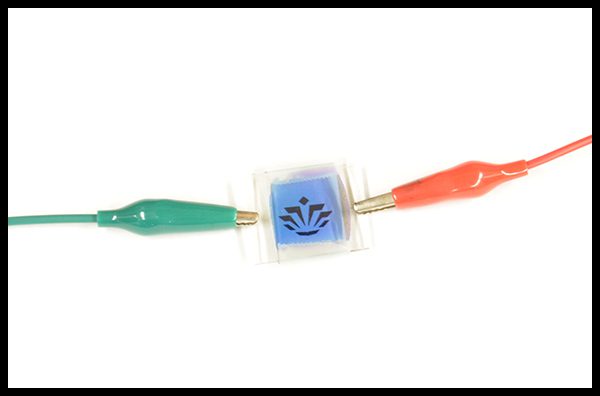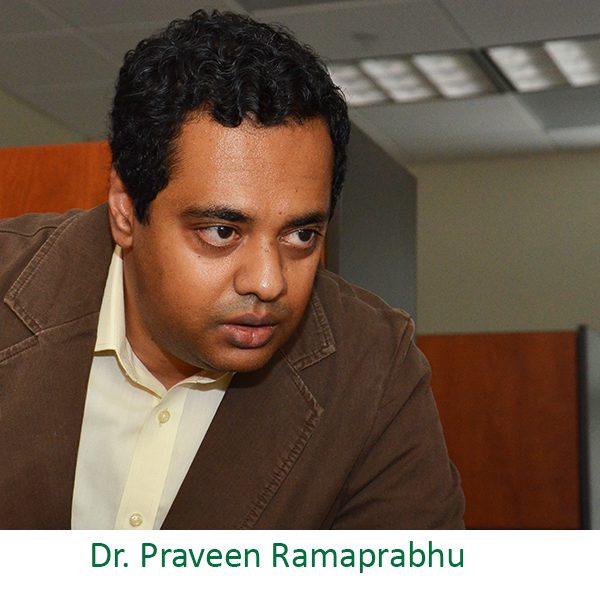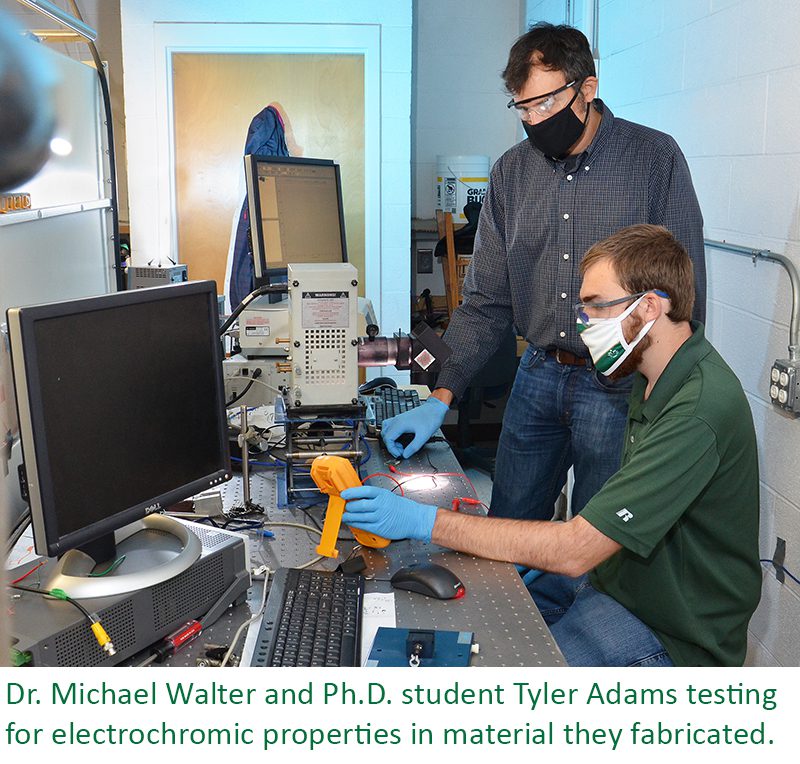NSF Grant Supports Patent Capstone PH.D. Projects

The National Science foundation has awarded a $500,000 Innovations in Graduate Education grant to UNC Charlotte that will support doctoral students in STEM disciplines, as they develop their capstone thesis projects for patenting instead of for journal publications as has been the norm.
“The National Science Foundation is looking for fundamentally new ideas to change the paradigm of graduate education,” said Dr. Praveen Ramaprabhu, professor in Mechanical Engineering and the principal investigator on the grant. “This Innovations in Graduate Education (IGE) award will allow us to implement a novel program called Pathways to Entrepreneurship (PAtENT). The program will provide an alternate pathway to earning doctoral degrees, and will potentially spur graduation rates, generate employment in the local communities, and maintain the nation’s edge in technological innovation.”
 The UNC Charlotte project team also includes co-principal investigators Dr. Harish Cherukuri, Dr. Mesbah Uddin and Dr. Terry Xu from Mechanical Engineering, Dr. Audrey Rorrer from Computing and Informatics, and Dr. David Pugalee from the Center for STEM Education.
The UNC Charlotte project team also includes co-principal investigators Dr. Harish Cherukuri, Dr. Mesbah Uddin and Dr. Terry Xu from Mechanical Engineering, Dr. Audrey Rorrer from Computing and Informatics, and Dr. David Pugalee from the Center for STEM Education.
“We have good record at UNC Charlotte of developing intellectual property,” Dr. Ramaprabhu said. “But in the past we had no system for developing patent ideas as keystone achievements of doctoral research. Developing an idea for patenting meant a lot of additional work, so many students did not pursue that route.”
The type of work involved in applying for patents can be very different from that of tailoring research for journal articles. And often patents don’t allow for information about the research and technology involved in projects to be published, because the work is proprietary.
The PAtENT program will provide resources, materials and supplies needed for developing capstone research for patenting. PAtENT teams will consist of a Ph.D. student and a faculty mentor, who will apply for funding from the grant. There are currently five PAtENT teams underway.
 Dr. Michal Walter of the Chemistry Department is currently part of two PAtENT teams, one of which has already applied for a patent and one that is now preparing to apply. Dr. Walter’s laboratory performs basic science, trying to solve materials science problems through the creation of new molecules.
Dr. Michal Walter of the Chemistry Department is currently part of two PAtENT teams, one of which has already applied for a patent and one that is now preparing to apply. Dr. Walter’s laboratory performs basic science, trying to solve materials science problems through the creation of new molecules.
“We synthesize new molecules from the ground up,” Dr. Walter said, “and then test their material properties to see how the compounds conduct electricity, react to light and store energy. We often file for provisional patents for every new compound and device we are developing.”
One of Dr. Walter’s PAtENT students is Tyler Adams, who is in the Nanoscale Science Ph.D. program. “Last fall we created four new molecules and tested them for electrochromic, photochromic and electrofluorochromic properties,” Adams said. “We have a lot of ideas for possible uses for the materials.”
As part of the PAtENT program, Adams will get the opportunity to explore the uses and development of his new materials by working with UNC Charlotte’s Ventureprise® program. As an innovation and entrepreneurship center serving campus and the Charlotte region, Ventureprise works to provide resources and expertise for startup companies as they commercialize their research.
“I’m looking forward to working with Ventureprise, and learning the patent and commercialization processes,” Adams said. “I want to understand more about markets and application, and get the experience of presenting before a patent committee.”
In addition to training from Ventureprise, PAtENT encourages students to take two new courses from the Business of College that are tailored towards STEM entrepreneurship.
As PAtENT progresses, Dr. Rorrer and Dr. Pugalee will perform measurement and analysis into the pedagogical aspects of the project to determine the success of the program.
“We will be doing measurement, so can say what worked and what didn’t,” Dr. Ramaprabhu said. “We will take the lessons learned and make tweaks that are needed. We would like to see the successes of our pilot program repeated at other graduate education institutions. Our ultimate goal is to see similar graduate programs across in the country.”
Provided Courtesy Mike Herman, College of Engineering.